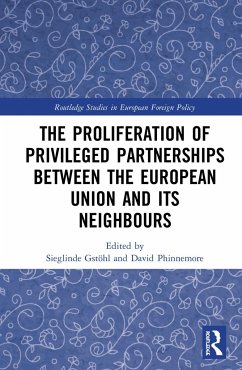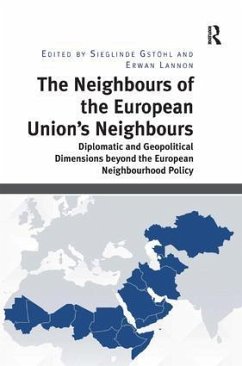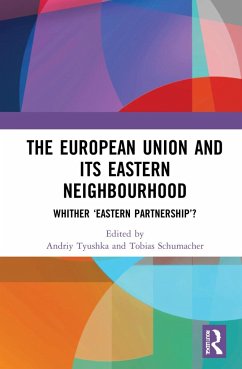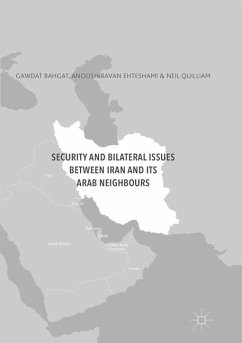
The European Union and its Eastern Neighbours
Towards a More Ambitious Partnership?
Versandkostenfrei!
Versandfertig in 1-2 Wochen
196,99 €
inkl. MwSt.
Weitere Ausgaben:

PAYBACK Punkte
98 °P sammeln!
The European Neighbourhood Policy (ENP) of 2004, and the succeeding Eastern Partnership (EaP) of 2009 heralded a revolutionary new form of relations with the European Union 's neighbours - partnership based on joint ownership and shared values - which would complement if not entirely replace the EU 's traditional Eastern Partnership (EaP) governance framework used for enlargement. These initiatives, however, have received a mixed response from the EU 's eastern neighbours. This book explores the EU 's relations with its eastern neighbours. Based on extensive original research, including in-depth interviews with key people in Belarus, Ukraine, Moldova and in Brussels, it assesses why the EU 's initiatives have been so poorly received. It shows how the key elements of "partnership" have been forged mainly by the EU, and not jointly, and examines the idea of external governance, and how the application of this has been over-prescriptive and confusing.
This book explores the EU's relations with its eastern neighbours. Based on extensive original research - including in-depth interviews with key people in Belarus, Ukraine, Moldova, Russia and Brussels - it assesses why the EU's initiatives have received limited legitimacy in the neighbourhood. The book shows how the key elements of partnership have been driven mainly by the EU, rather than jointly, and examines the idea and application of external governance, and how this has been over-prescriptive and confusing.














